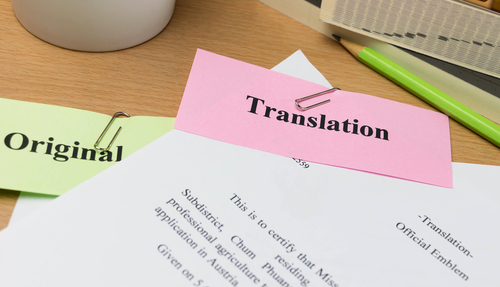Five problems caused by not using an experienced, technical translator.
With the global chemical industry expanding at a rapid rate, it has become increasingly important to ensure 100% accuracy in your technical documentations. But how do you guarantee this, if the documents aren’t in your own language?
Expanding a business to countries outside of the UK can elevate a company to the next level, but can also cause many issues if the expansion is handled incorrectly, especially regarding translated documents. It can be tempting to pay cheap prices for translation services, but at TW Languages, we have seen many businesses trying to redeem themselves following budget providers’ translation mistakes.
In the hope of reducing more companies from experiencing this, we are on a mission to outline the issues you could encounter if you don’t use an experienced technical translator.
- Cause offence
The last thing you would want to do when you are trying to expand your business into a certain country, is cause offence. Some countries will have very similar social expectations to the UK, but there may be certain dialect that is customary in a foreign country, or phrases that would be misinterpreted as rude.
An example of this was when Coca-Cola launched a new advertisement campaign in New Zealand translated into the native language, Maori, in 2019, but failed to consult with a native speaker. This resulted in what they thought said ‘Hello mate” actually translating into “Hello death.”
The only way to be sure that no offence will be caused to potential customers, is by having a translator whose native language is the one you’re translating into, so that they are familiar with all the linguistic expectations.
2. Non-compliance of regulations
Similar to dialect differentiations, each country may have different regulations that businesses in the chemical industry must comply with. The repercussions of getting this area of translation wrong can be very serious, with many regulations being legal requirements. This presents another reason why it is imperative to not only have a translator who is from the country, but also an individual who is a chemical industry expert. This ensures the translator is always up to date with any new rules and regulations, and that you won’t encounter any possible legal implications as a result of your mis-translated documents.
3. Inaccuracy
This is the most obvious repercussions of not using an experienced technical translator, but it is also one of the most important. Whether a translator makes several small grammatical errors, or a much larger miscommunication error, inaccuracies in a technical document will always result in a loss of trust for your clients.
The Virginia Department of Health came under huge repercussions when they used Google translate to convert Coronavirus FAQs into Spanish. The digital platform translated the phrase “the vaccine is not mandatory” into “the vaccine is not necessary,” leading to huge trouble for the US government.
If your products are being sold to pharmaceutical or medical companies to be incorporated with other ingredients, it is vital that all important information is 100% accurate to avoid any concerns around what makes up a vaccine, for example.
4. Damage to Reputation
All of the above listed repercussions would cause serious damage to your reputation, and potentially affect the possibility of expanding your business globally. In extreme circumstances, word of the issue may return to the UK and affect your whole business reputation which you have worked so hard to build.
HSBC launched an international campaign in 2009 with their slogan as “assume nothing” but when this was translated into other languages, it became “do nothing.” The bank had to spend $10 million dollars rectifying the damage, but not before losing the trust of many of its clients.
5. Missed opportunities
Not using an experienced translator could ultimately result in missed opportunities for your business, which could have been avoidable. In business sectors as technical as the chemical industry, it’s imperative to ensure accuracy and professionalism at all times, and the easiest way to guarantee this is by using experienced, technical translators.
Contact us on 0161 826 8777, or explore our translation services on our website.



